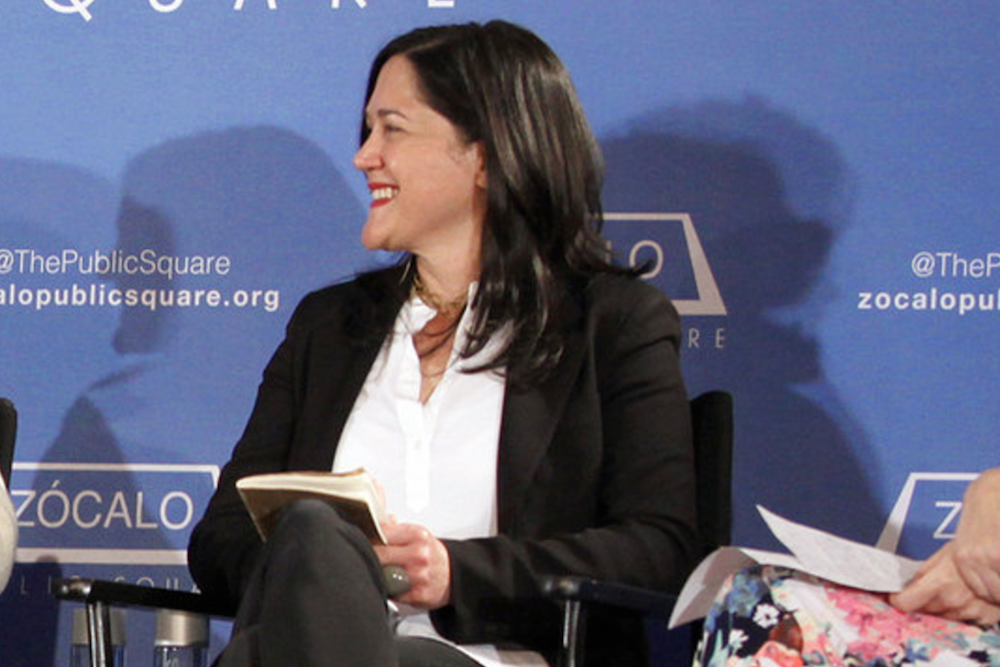
Photo by Aaron Salcido.
Luz María Sánchez is a transdisciplinary artist, writer, researcher, and academic who currently serves as Chair of the Department of Arts and Humanities at Universidad Autónoma Metropolitana (Lerma Campus) in Mexico. Before participating in a panel asking “Does Art Really Make Us Better Citizens?” at a Zócalo conference in downtown Los Angeles entitled “What Can the World Teach California About Arts Engagement?” she spoke in the green room about procrastinating, traveling, and finding your voice.
You work in sound. What city has the best soundscape?
Well there’s no best soundscape. I mean, there are soundscapes and they are all great. There’s no pristine way of listening. There’s this way of putting “soundscape” as something that is more romantic—oh, we’re going to listen to trees and rivers—but then we do not talk about how our cities really sound, which is this continuous hum of cars, of air conditioning machines. Now there are a lot of artists working more toward the sounds that are really around us, like, for example, the sound when you go to a restroom and you have those electrical machines to dry your hands. The decibels of that are really kind of aggressive. We tend to block that. But it’s really there and we should try to also focus and control that. To think about the actual kind of sound that we are embedded in, and maybe not be so romantic about listening to just nature. There are people who have never heard silence at all. Maybe us.
What was the last thing that inspired you?
I think working with young students, not necessarily kids but students that are between 15 and 18 years old. When they’re trying to find out what the outcome of their lives is going to be but they’re studying still; they haven’t decided yet if they’re going for which career. And when they start working with technology and art and the process of finding their own voice. When you are looking for a career in the arts the most important part is to find your own voice, because that’s what’s going to make you different from everybody else. They see that they don’t have everything. Nothing to say yet. But they need to look inside of themselves. That’s the best part. You cannot copy whatever your other friend in the classroom is doing. You need to find your own voice. That’s the important part. I think that’s really nice.
What’s your favorite breakfast?
Berries and coffee.
Do you have a favorite household chore?
Cooking.
What’s your specialty?
Salads.
What was the most frustrating project you ever worked on?
Maybe when I was working in a radio station in Mexico. Having to leave that project without being able to fulfill it. It was really frustrating. You feel like you lost one year of your life and you didn’t fulfill what you were supposed to and it’s weird to just leave. But sometimes that happens.
What surprises you most about your life right now?
To be able to connect with new people and to learn and to keep on growing.
How do you procrastinate? Maybe you don’t procrastinate …
I do, I do. I read and listen to music. Sometimes I’m going to do a project and then I start telling myself, well, I need to listen to that music because it is going to help me. Or I have to read that article because I need it. But then you don’t do anything—you don’t do what you have to do.
What superpower would you most like to have?
To be able to move from one place to the other without having to go to a plane. Teletransportation, something like that, that would be great.
Do you have any tips for making plane travel easier, in the meantime?
No, just relax and go with the flow. It’s better to smile and let it go. Otherwise you’re going to be miserable.



